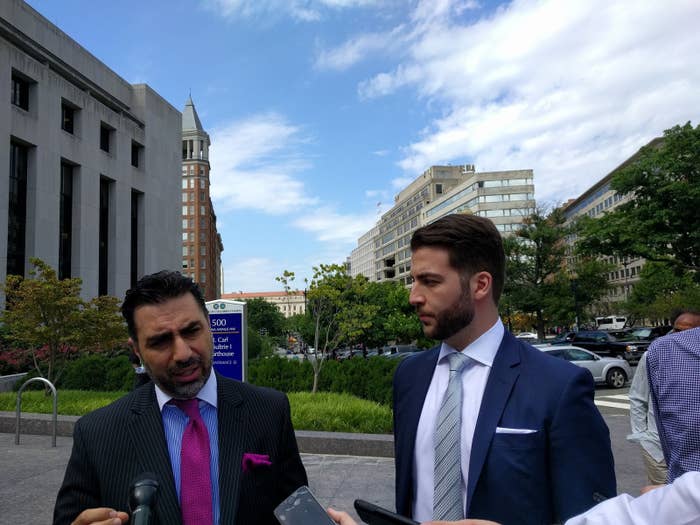
A judge in Washington, DC, ruled on Thursday that federal prosecutors could go ahead with a search warrant for records about an Inauguration Day protest website, but that they will have to do so under the judge's supervision.
Lawyers for the web-hosting service challenging the search warrant, DreamHost, told reporters after the hearing that they will consider appealing the judge's order. Even a new, revised version of the search warrant that prosecutors filed with the court on Tuesday that narrowed the scope of information sought by the government implicated people's First Amendment rights, they said.
The government initially served a search warrant dated July 12 on DreamHost for files and records associated with the website DisruptJ20.org, which featured information about Inauguration Day protests in Washington. Following a legal challenge from DreamHost, the government said this week it would no longer ask for the records of anyone who had visited the website, which DreamHost said would have included more than 1 million IP addresses.
But even with that exclusion and other limitations that the government agreed to — putting a date range on the information sought and excluding draft materials that were never published — DreamHost said the search warrant continued to present constitutional problems. The company's lawyers said the government would still get a trove of potentially personal data — such as email distribution lists and emails sent by outside third parties to addresses registered under the site's domain — and then get to decide what was relevant and covered by the search warrant.
DreamHost's attorney, Raymond Aghaian, argued on Thursday that given the free speech and right to political association issues at play — people would be chilled from visiting political sites in the future if they knew there was a chance their information could end up in the hands of law enforcement, he said — the two-step process for obtaining and then searching the data was unacceptable.
DC Superior Court Judge Robert Morin announced his decision from the bench immediately after hearing arguments. He said that he wasn't going to disturb the original finding by another judge that there was probable cause for the search warrant, but said the First Amendment issues at stake required additional protections from the court.
Morin ordered the government to provide him with a report explaining who would review the data, how they would do the search, and the procedures they would use to minimize access to information that wasn't covered by the search warrant, which focuses on evidence of criminal activity on Inauguration Day. More than 200 people were charged with rioting in Washington on Jan. 20, and the majority of those criminal cases remain pending.
Morin said that the government could use the two-step process that DreamHost objected to — obtaining all the data, and then searching it for information to seize under the search warrant. He noted that other courts in the past had upheld this type of process for searching electronic information.
The judge said the government would have to give him a list of all the information it wanted to seize, with an explanation for why it fell under the search warrant. Information deemed irrelevant to the search warrant would be filed with the court under seal, and inaccessible to the government.
"I'm going to be supervising their search," Morin told the lawyers.
DreamHost's lawyers asked Morin to delay his order until they decided whether to appeal. Morin said DreamHost would have to produce records to the government, but the government could not look at any of the information until after DreamHost made a decision about appealing.
A spokesperson for the US Attorney's Office in Washington declined to comment.

